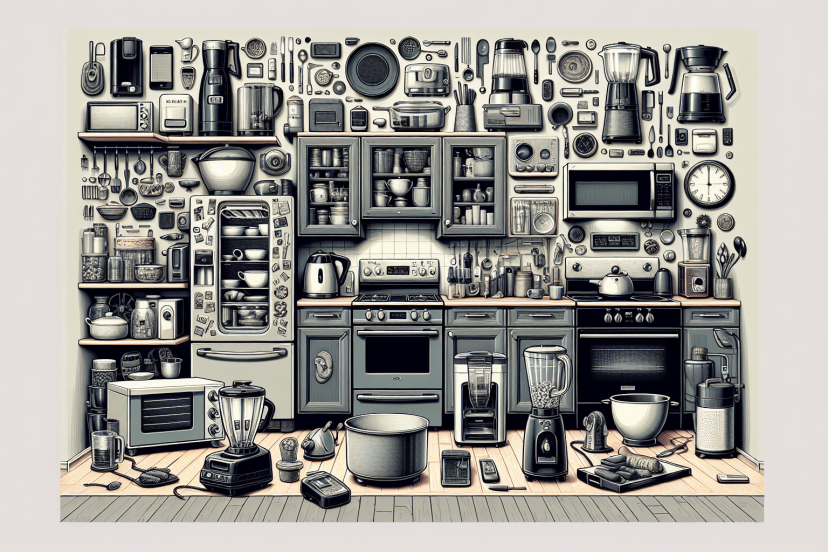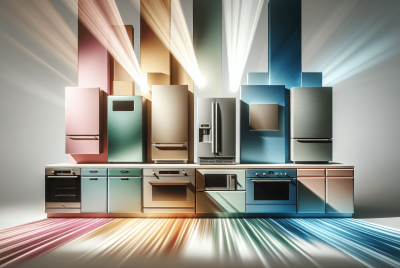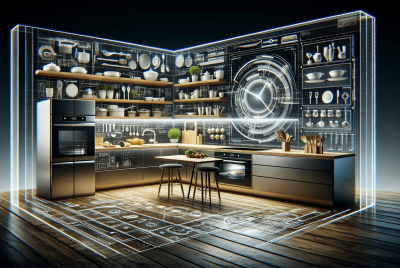What Are Small And Large Appliances?
Have you ever wondered about the difference between small and large appliances? These everyday fixtures are essential in our homes, but do we really know what sets them apart? In this article, we’ll explore the definitions of small and large appliances, providing you with a better understanding of their roles and how they contribute to our daily lives. Whether it’s a toaster or a refrigerator, join us as we unravel the world of household appliances and discover the unique functions they serve.
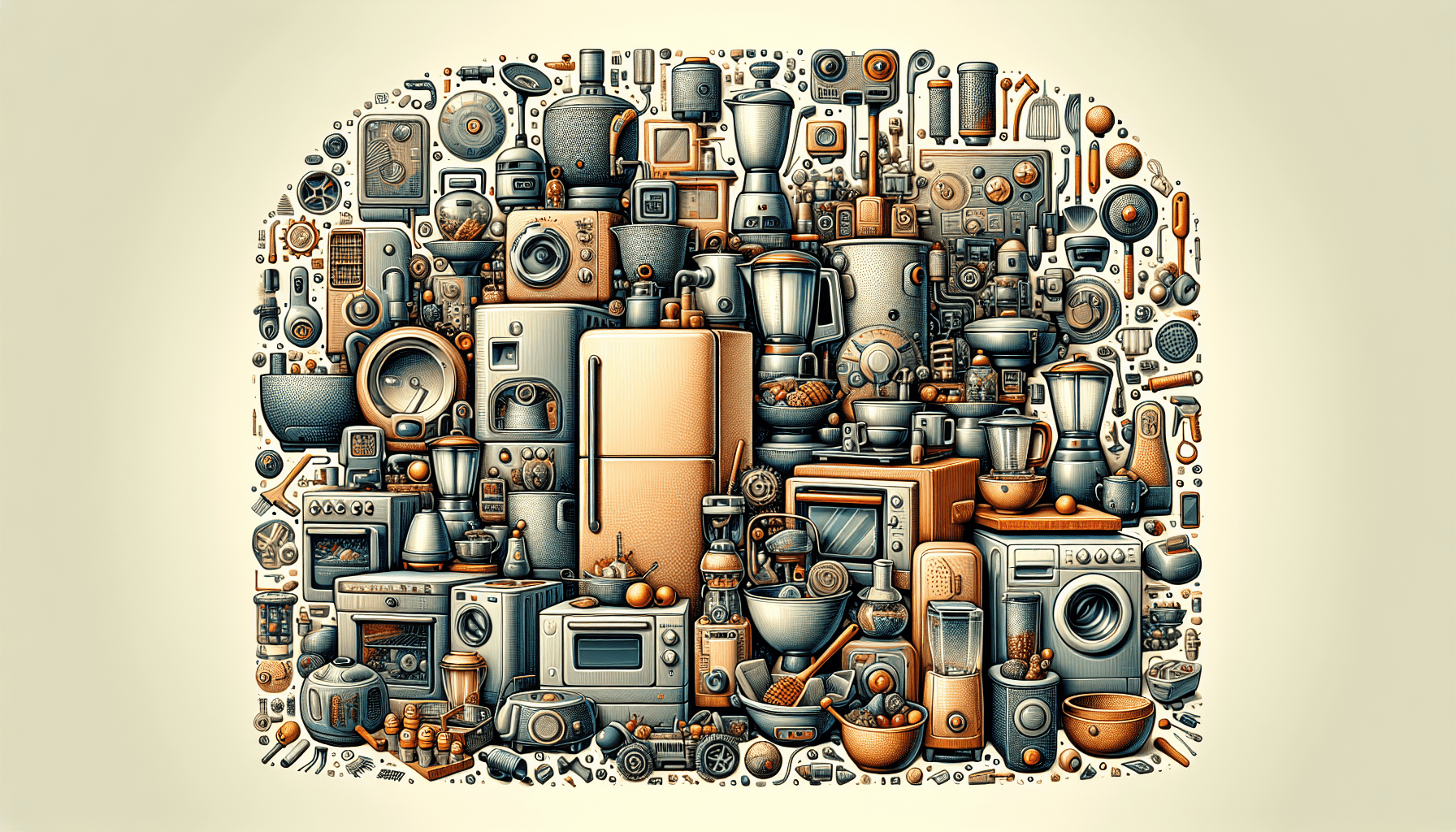
Definition of Small Appliances
Small Appliances vs. Large Appliances
Small appliances refer to household devices that are designed to perform specific tasks and are typically portable and lightweight. These appliances are intended to be used on a smaller scale and are often used in the kitchen, for personal care, cleaning, and home comfort purposes.
On the other hand, large appliances are the bigger counterparts to small appliances. They are generally larger in size, have higher capacity, and are built to handle heavier loads. These appliances are typically fixed or semi-fixed in one location and are essential for various household tasks such as cooking, laundry, refrigeration, and heating and cooling.
Characteristics of Small Appliances
Small appliances possess several characteristics that distinguish them from large appliances. Firstly, they are compact in size, making them easy to store and transport. They are also designed to be user-friendly, with simplified controls and intuitive operation. Additionally, small appliances are often more affordable compared to their larger counterparts, making them a popular choice for individuals looking for cost-effective solutions. Lastly, small appliances tend to have lower power consumption requirements, which can be advantageous in terms of energy efficiency.
Types of Small Appliances
Kitchen Appliances
Kitchen appliances are a subset of small appliances that specifically cater to various tasks related to food preparation and cooking. These include appliances such as toasters, blenders, coffee makers, and electric kettles. These appliances simplify and streamline kitchen tasks, providing convenience and efficiency in daily cooking routines.
Personal Care Appliances
Personal care appliances encompass a range of devices that are designed to enhance personal grooming and pampering. This category includes appliances such as hair dryers, electric shavers, electric toothbrushes, and facial steamers. These appliances are tailored to meet personal hygiene needs and help individuals maintain their appearance and well-being.
Cleaning Appliances
Cleaning appliances are small devices that aid in household cleaning tasks and help maintain cleanliness and hygiene. Examples of these appliances include vacuum cleaners, steam mops, and robotic cleaners. These appliances make cleaning more efficient, saving time and effort, and keeping homes free from dust, dirt, and allergens.
Home Comfort Appliances
Home comfort appliances are designed to enhance comfort and create a pleasant living environment. This category includes appliances such as humidifiers, air purifiers, space heaters, and fans. These appliances contribute to a cozy and comfortable atmosphere, ensuring optimal indoor air quality and temperature regulation.
Popular Small Appliances
Toasters
Toasters are a staple in most kitchens, allowing you to effortlessly toast bread, bagels, and pastries to perfection. With adjustable settings and even toasting capabilities, toasters ensure a delicious and crispy start to your day.
Blenders
Blenders are versatile appliances that can be used for a variety of tasks, such as making smoothies, pureeing soups, or creating homemade sauces. Their powerful motors and sharp blades make it easy to blend ingredients into a smooth and consistent texture.
Coffee Makers
For coffee enthusiasts, a coffee maker is a must-have small appliance. These machines brew coffee quickly and conveniently, allowing you to enjoy a fresh cup of joe without the need to visit a coffee shop. Whether you prefer drip coffee, espresso, or cappuccino, there is a coffee maker to suit your preferences.
Electric Kettles
Electric kettles offer a convenient and efficient way to boil water, whether it’s for making tea, coffee, or any hot beverage. With their rapid boiling capabilities and automatic shut-off features, electric kettles provide a quick and safe method for hot water preparation.
Advantages of Small Appliances
Convenience
One of the major advantages of small appliances is the convenience they offer. These appliances are designed to simplify everyday tasks and make them easier and quicker to accomplish. Whether it’s toasting bread, blending ingredients, or cleaning your home, small appliances save you time and effort, allowing you to focus on other activities.
Space-Saving
Small appliances are specifically designed to be compact and space-saving. They occupy minimal counter or storage space compared to their larger counterparts, making them ideal for small kitchens or limited living spaces. Their portable nature also allows for easy storage or transportation when not in use.
Affordability
Small appliances are generally more affordable compared to large appliances. This makes them accessible to a wider range of consumers, including individuals with budget constraints. The lower price point of small appliances allows you to enjoy the benefits and convenience they provide without breaking the bank.
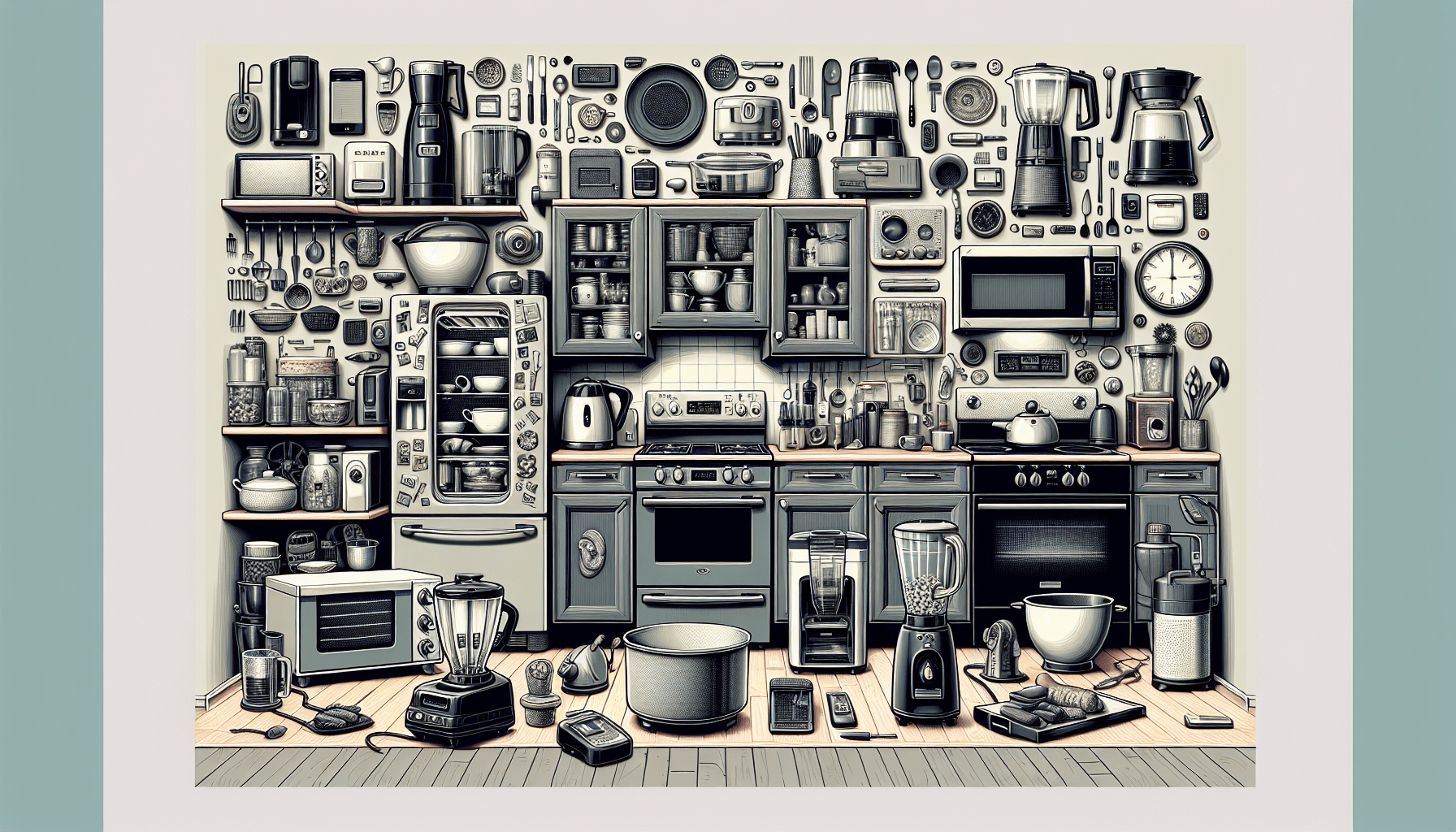
Disadvantages of Small Appliances
Limited Capacity
One of the main disadvantages of small appliances is their limited capacity. Due to their compact size, small appliances often have smaller containers or compartments to hold ingredients or perform tasks. This can be restrictive in terms of the quantity of food or beverages that can be processed or prepared at once.
Less Power
Small appliances typically have lower power ratings compared to their larger counterparts. While this may not be an issue for certain tasks, it can affect their performance when dealing with more demanding or heavy-duty applications. Tasks that require higher power, such as grinding tough ingredients in a blender, may take longer or result in less satisfactory results with small appliances.
Definition of Large Appliances
Large Appliances vs. Small Appliances
Large appliances are household devices that are characterized by their size, capacity, and ability to handle heavy-duty tasks. Unlike small appliances, large appliances are usually fixed or semi-fixed installations within a home, rather than portable or moveable items. These appliances are essential for major household functions such as cooking, laundry, refrigeration, and heating or cooling.
Characteristics of Large Appliances
Large appliances possess certain characteristics that set them apart from small appliances. They are typically heavier and bulkier, designed to handle larger quantities of food, clothing, or other materials. Large appliances often require dedicated spaces for installation, such as built-in ovens or refrigerators. They also tend to have more advanced technology and features compared to small appliances, catering to specialized needs and delivering high-quality performance.
Types of Large Appliances
Kitchen Appliances
Kitchen appliances are an integral part of large appliances, catering to various aspects of food preparation and cooking on a larger scale. This category includes appliances such as refrigerators, ovens, dishwashers, and cooktops. These appliances are essential for larger families or individuals who engage in frequent or extensive cooking activities.
Laundry Appliances
Laundry appliances encompass appliances that are designed for cleaning and drying clothes and other fabrics. Examples of laundry appliances include washing machines, dryers, and washer-dryer combos. These appliances offer convenience and efficiency in managing laundry loads, saving time and ensuring clean and fresh-smelling clothing.
Refrigeration Appliances
Refrigeration appliances, commonly known as refrigerators or fridges, are used for storage and preservation of food and beverages. These appliances provide a controlled and cold environment to extend the shelf life of perishable items, preventing food waste and ensuring food safety. Refrigeration appliances come in various sizes and designs to cater to different household needs.
Heating and Cooling Appliances
Heating and cooling appliances are crucial for maintaining a comfortable indoor climate. These appliances include air conditioners, heaters, and HVAC (heating, ventilation, and air conditioning) systems. They regulate temperature, humidity, and air quality, ensuring a cozy environment in colder months and optimal cooling during hot weather.
Popular Large Appliances
Refrigerators
Refrigerators are a staple in every kitchen, providing the ideal storage environment for fresh produce, dairy products, and leftovers. With various sizes, styles, and features available, refrigerators offer ample space and innovative technologies to meet diverse storage needs.
Washing Machines
Washing machines revolutionize the laundry routine by automating the process of cleaning clothes. With different load capacities, wash programs, and additional features like steam cleaning or allergy cycles, washing machines cater to various fabric types and laundry requirements.
Ovens
Ovens are essential for baking, roasting, and cooking a variety of dishes. From traditional gas or electric ovens to modern convection or steam ovens, there are options available to suit different cooking styles and preferences. Ovens often come with advanced features like multiple cooking modes, self-cleaning functions, and precise temperature control.
Air Conditioners
Air conditioners ensure cool and comfortable indoor environments during hot summer months. From window units to central air conditioning systems, air conditioners maintain optimal temperature and humidity levels, creating a pleasant atmosphere for relaxation and productivity.
Advantages of Large Appliances
Higher Capacity
One of the primary advantages of large appliances is their higher capacity. These appliances can handle larger loads, whether it’s cooking large meals, washing a bulky load of laundry, or storing a significant amount of food. Higher capacity allows for more efficient performance and reduces the need for multiple cycles or batches.
Increased Power
Large appliances are equipped with more powerful motors, heaters, or compressors, enabling them to tackle heavy-duty tasks with ease. This increased power ensures faster cooking times, quicker laundry cycles, and efficient cooling or heating capabilities. The enhanced power of large appliances contributes to their effective performance and reliability.
Specialized Functions
Large appliances often offer specialized functions that cater to specific needs or preferences. For example, ovens may have convection or steam cooking modes, providing versatile cooking options and delivering superior results. Washing machines may offer delicate or hand-wash cycles to care for sensitive fabrics. These specialized functions enhance the overall user experience and allow for customized usage.
Disadvantages of Large Appliances
Higher Cost
One of the significant disadvantages of large appliances is their higher cost compared to small appliances. The larger size, increased power, and advanced features contribute to the higher price tag. Large appliances are a long-term investment, but their initial purchase cost may pose a financial challenge for some individuals or families.
Space Requirements
Large appliances require dedicated space for installation and use. This can be a limitation in smaller homes or apartments where space is at a premium. Kitchen cabinets and counter space may need to be reconfigured to accommodate larger appliances, and additional arrangements may need to be made for laundry or heating and cooling appliances. The spatial requirements of large appliances can be a factor to consider when planning or renovating a home.
In conclusion, small and large appliances serve different purposes and cater to specific needs within a household. Small appliances offer convenience, space-saving benefits, and affordability, while large appliances provide higher capacity, increased power, and specialized functions. Understanding the characteristics and types of small and large appliances allows individuals to make informed choices when selecting the appliances that best suit their lifestyle and requirements. Whether it’s toasting bread, washing clothes, or creating the perfect cup of coffee, small and large appliances play a vital role in modern living, making daily tasks more manageable and enjoyable.

